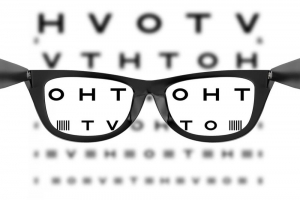 Many people do not see why they need to go in for a routine eye care exam. After all, if they can see, there is nothing wrong with their eyes, right? That could not be further from the truth. There are different eye problems that are not noticeable to a patient. Even if you do not notice them, they could already be causing problems! Keep reading to learn more about the importance of routine eye care!
Many people do not see why they need to go in for a routine eye care exam. After all, if they can see, there is nothing wrong with their eyes, right? That could not be further from the truth. There are different eye problems that are not noticeable to a patient. Even if you do not notice them, they could already be causing problems! Keep reading to learn more about the importance of routine eye care!
What is Routine Eye Care?
Routine eye care is measures taken to ensure the continued good health of your eyes. Because eyes change with time, your routine eye care in Grand Rapids should include:
- An annual exam performed by a qualified eye doctor
- Eye dilation
- A glaucoma test
Checking your prescriptions, and if necessary, new prescriptions for contact lenses and eyeglasses. When it comes to eye care, the goal is prevention. Routine eye care helps prevent conditions that may affect your vision.
What is a Routine Eye Exam?
A routine eye exam is a visit to the eye doctor to check on the health of your eyes. During a routine eye exam, your eye doctor may screen for diseases, as well as check your vision.
If you wear glasses or contacts, they will update any existing prescriptions as well. The exam checks for any developing eye conditions. It’s advisable to get this exam at least once every year, even when your vision seems perfect.
What is the Difference Between a Routine Eye Exam and a Comprehensive Eye Exam?
An eye doctor will take only about half an hour to perform a regular or routine eye exam. A routine eye exam is mainly geared towards detecting refractive errors. These include nearsightedness, farsightedness, and astigmatism. For these errors, glasses and contact lenses can help improve vision.
A comprehensive eye exam checks for eye diseases, refractive errors, and other impairments and tests carried out in a comprehensive eye exam include visual acuity tests. Visual acuity tests determine your eye’s ability to focus. Other tests are ocular motility testing, glaucoma test, and a slit lamp exam. During a comprehensive exam, a diagnosis may be made, and depending on diagnosis, this could mean you need treatment options like eye surgery and contacts or glasses.
Why Should You Go In for an Annual Eye Exam?
Most eye diseases are not noticeable until they have already developed. At this point, they will start to affect your vision. An eye exam is the only way to detect these conditions before they cause vision loss. Some eye diseases such as glaucoma don’t have a cure and can only be managed. If left untreated, glaucoma will lead to irreversible blindness. That makes it crucial for diagnosis and treatment to begin as soon as possible.
It’s also advisable to make an appointment with an eye doctor as soon as you notice symptoms such as:
- Blurred vision
- Inability to focus on either near or distant objects
- Eye fatigue
- Sensitivity to light
Who Should Have an Eye Exam?
Everyone should go for routine eye exams. The Academy of Ophthalmology recommends that routine eye exams are essential, even if our eyes and vision are fine. How often you should have eye exams depends on a few things. A child should have his or her first thorough eye exam before they start kindergarten, if not before. If you have refractive errors, you should have an eye exam once a year. If you have good vision, you should still see your eye doctor every other year. As you get older, this should change, as you’re more likely to develop glaucoma or cataracts. Adults who are 65 years or older should get an eye exam every year.
Ready to start making better routine eye care choices? Schedule an appointment at Grand Rapids Ophthalmology in Grand Rapids, MI today!
Schedule an Appointment
Schedule an appointment today to experience the GRO difference. Call 616.588.6598 or click here.






